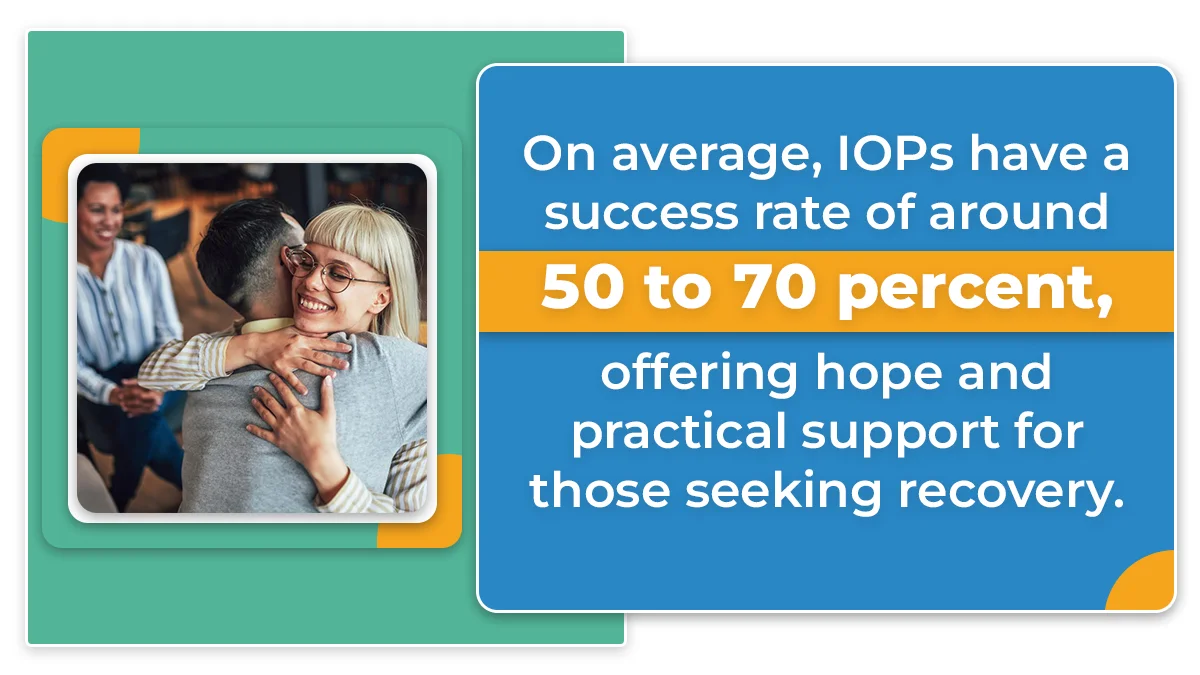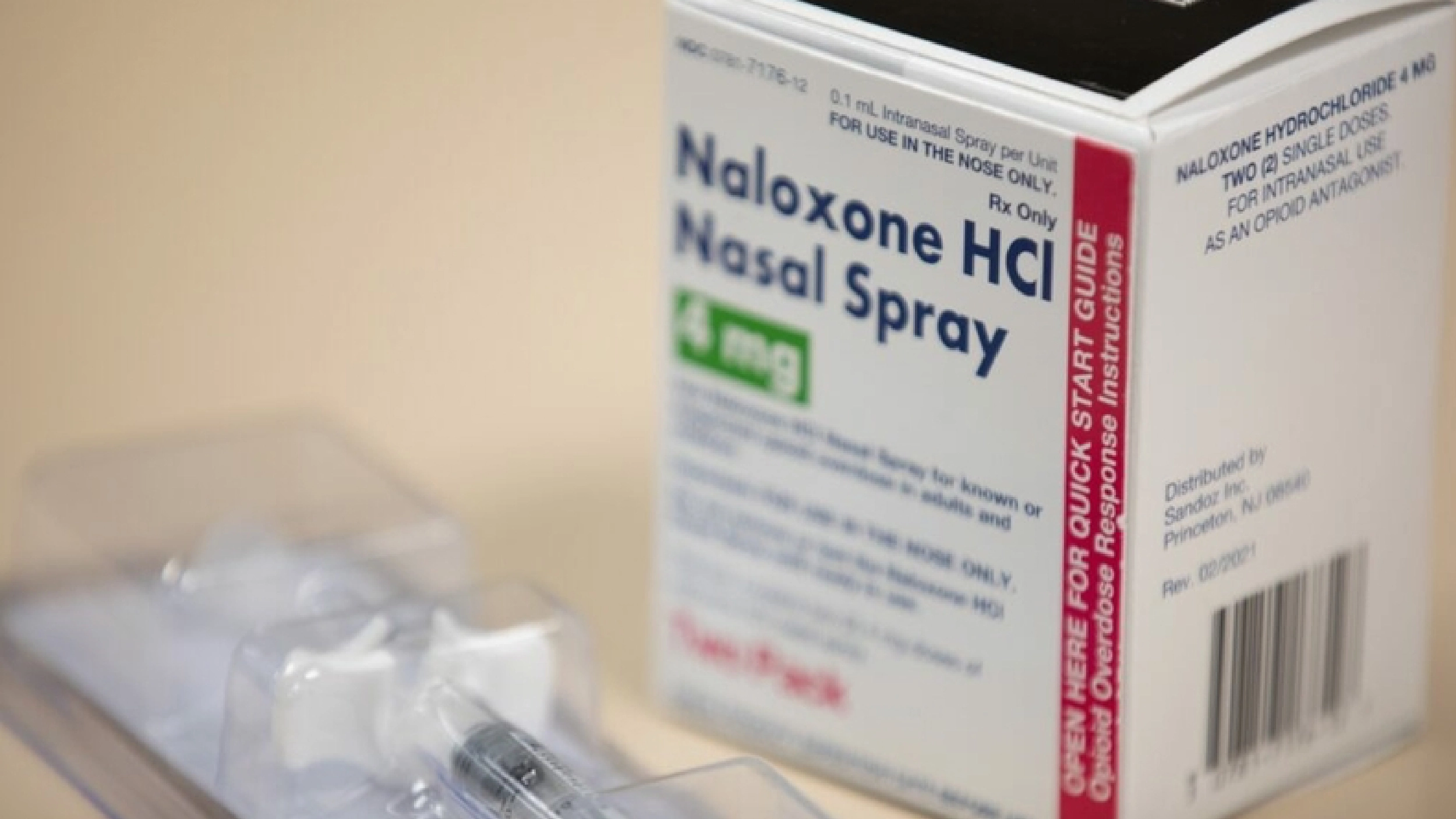
A Guide To Repairing Family Relationships
Discover expert tips for repairing family relationships and fostering healthy connections with The Recovery Team.

An intensive outpatient program (IOP) is a structured and flexible treatment option designed to provide individuals with the intensive support they need while allowing them to maintain their daily routines. IOPs are a vital part of the continuum of care, bridging the gap between residential treatment and standard outpatient services.
This article will give valuable insights into intensive outpatient programs, highlighting how they differ from standard outpatient programs, what individuals can expect during their participation, and the numerous benefits they offer those seeking recovery and mental wellness.
An intensive outpatient program (IOP) is a flexible treatment program for addiction and mental health issues. Here is what you need to know about this treatment type:
Contact The Recovery Team at (800) 817-1247 today to learn about our treatment programs that provide structured care without disrupting your daily life.
An intensive outpatient program, often called IOP, is a structured and supportive approach for people with substance use disorder (SUD) or mental health challenges. It’s like a bridge between a full-time residential program and regular outpatient therapy, offering more flexibility and freedom.
In IOP, individuals attend therapy sessions several times a week, allowing them to continue their daily routines. They receive individual counseling, group therapy, and educational workshops. This approach provides valuable tools and strategies to overcome addiction or mental disorders.
IOP is a fantastic choice for many because it offers intensive care while letting individuals stay connected to their families and jobs. It’s like getting the help you need without putting a pause on your life. It’s a win-win situation, ensuring you get the support required to move forward.
When it comes to addiction treatment, choosing between an intensive outpatient program (IOP) and a standard outpatient program can be a critical decision. Both offer valuable support, but they differ in several key ways.
An IOP is more intensive. It involves frequent therapy sessions, often three to five times a week, allowing for a deeper focus on recovery. In contrast, standard outpatient programs offer fewer sessions, typically one or two per week, which makes them less intensive and suitable for individuals with milder addiction issues.
IOPs demand a more substantial time commitment due to their frequent sessions, which can last several hours. On the other hand, standard outpatient programs are less time-consuming, making them more accessible for people with work or family obligations.
IOPs follow a structured schedule, offering a comprehensive treatment plan focusing on recovery goals. Conversely, standard outpatient programs provide more flexibility, allowing individuals to balance treatment with their daily routines.
IOPs often foster a strong community among participants, as they spend more time together in therapy sessions. In contrast, Standard outpatient programs offer support but less opportunity for group bonding.
IOPs are typically recommended for individuals with moderate to severe addiction issues who require more intensive care. On the other hand, standard outpatient programs are suitable for those with mild addiction challenges.
Both options aim to provide essential treatment and support, but the intensity and level of care differ, allowing for a more personalized approach to addiction or mental health recovery. Choosing between an intensive and standard outpatient program depends on the individual’s needs and circumstances.
Embarking on an intensive outpatient treatment journey can be a transformative experience. Here’s a glimpse into what you can expect as you take this vital step towards recovery:
In IOP, therapy and counseling are at the heart of the program. You’ll have regular individual therapy sessions with a trained therapist to help you explore the root of your addiction or mental health issues. Cognitive behavioral therapy (CBT) is the most commonly used therapy.
Medication management may be part of the treatment plan for individuals with substance abuse. Medical professionals will carefully assess your needs and prescribe medications when appropriate. These meds can help reduce cravings, manage withdrawal symptoms, and support recovery.
IOPs often incorporate holistic and complementary therapies to address your physical and emotional well-being. These may include yoga, meditation, art therapy, and mindfulness techniques. These holistic approaches can help you learn how to manage stress and develop coping skills.
Support groups are a crucial component of IOP treatment. You’ll join group therapy sessions with others who are facing similar challenges. These sessions provide a sense of community and allow you to share experiences, offer support, and gain insights from peers on their recovery journey.
IOPs often include educational workshops and life skills training to equip you with the tools needed for long-term recovery. These workshops cover relapse prevention, stress management, and communication skills.
Family therapy sessions may also be part of this treatment program to help repair and strengthen relationships damaged by addiction or mental health conditions. Involving loved ones in the recovery process can be vital to your success.
You’ll receive personalized care tailored to your unique needs throughout your IOP journey. The program is designed to help you build a strong foundation for lasting recovery while providing the flexibility to maintain your daily life.
Intensive outpatient addiction treatment offers many benefits that make it a practical and effective choice for many individuals on their path to recovery. Here’s a breakdown of the advantages of IOP:
Comprehensive Support: IOP provides a high level of care with structured therapy and counseling, ensuring you receive consistent support throughout your recovery.
Flexibility and Independence: Unlike residential programs, IOP sessions allow you to maintain your daily life and responsibilities, making it suitable for individuals with work, family, or school commitments.
Customized Treatment: Your IOP plan is tailored to your unique needs and challenges, offering personalized solutions for a successful recovery.
Supportive Community: Joining support groups within IOP creates a sense of belonging and helps you connect with others facing similar struggles. This camaraderie can be a powerful motivator.
Mental Health Focus: IOP treatment can address co-occurring mental health issues alongside addiction, ensuring a holistic approach to your well-being.
Relapse Prevention: You’ll learn valuable coping skills and strategies to prevent relapse, setting you up for long-term success in sobriety.
Cost-Effective: Compared to the residential treatment program, IOP tends to be more cost-effective while providing comparable outcomes.
Accountability: IOP programs hold you accountable for your progress, helping you stay on track and committed to your recovery goals.
Transition to Independence: IOP acts as a transitional step from intensive treatment to independent living, preparing you to thrive without constant supervision.
Intensive outpatient care offers a balanced, empowering way to address addiction and mental health concerns. With its personalized approach, strong support system, and focus on overall well-being, IOP can be a crucial step toward a healthier future.

Discover expert tips for repairing family relationships and fostering healthy connections with The Recovery Team.

Discover practical tips on how to set boundaries with people in this expert guide from The Recovery Team.

Naloxone saves lives. The Recovery Team shares how to reverse an opioid overdose with this drug.
The goals of IOP are to help individuals overcome addiction or mental health challenges. IOP aims to provide structured support, teach coping skills, foster personal growth, and promote lasting recovery. It empowers participants to regain control of their lives while maintaining daily routines.
The success rate of intensive outpatient programs (IOPs) varies but can be promising. Many factors influence success, such as individual commitment, the program’s quality, and addiction severity. On average, IOPs have a success rate of around 50 to 70 percent, offering hope and practical support for those seeking recovery.
During an intensive outpatient program (IOP), participants receive various treatments. These include therapy, counseling, support groups, medication management (if needed), and holistic approaches like yoga or mindfulness. These treatments are tailored to address substance abuse or mental health issues, offering a comprehensive path to recovery.
Picture this: You can continue going to work, spending time with loved ones, and pursuing your passions while receiving comprehensive addiction treatment. The Recovery Team offers an intensive outpatient program (IOP) that gives you the support and structure you need without disrupting your life.
We also provide a partial hospitalization program (PHP) for those requiring an intermediate support level. Our team is prepared to help you every step of the way. It’s all about meeting you where you are on your journey to recovery.
Don’t wait any longer. Take the first step toward a healthier life. Contact us at (800) 817-1247 today, and let us help you recover without pausing your life.